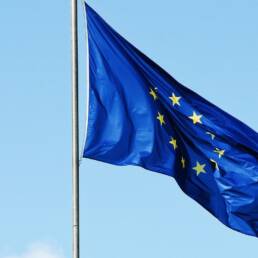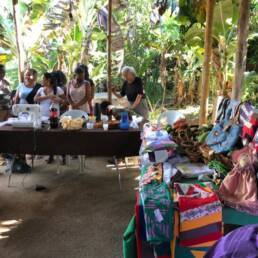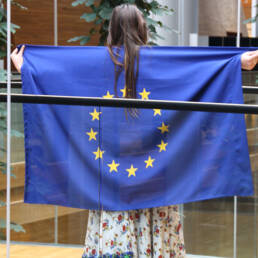Author
Luisa Fondello
Policy and Advocacy Officer
Tel: +32 (0)2 235 03 93
lfondello@caritas.eu
With the ongoing Multiannual Financial Framework (MFF) of the European Union coming to an end this year, the EU Council is under increasing pressure to finalise the budget negotiations. Caritas Europa and its members have been conducting advocacy efforts for a socially responsible and human-centred MFF for 2021-2027.
To speed up negotiations, the EU Council President, Charles Michel, called a special EU summit, which took place on 20-21 February in Brussels. Taking Charles Michel’s proposal into consideration, Member States were meant to make progress on identifying ways to fill the financial gap left by Brexit and on reconciling their vastly different positions. Particularly, EU leaders were expected to decide on the size and flexibility of the EU budget, and on whether to stick to business as usual (prioritising agriculture and farming budgets) or recognise their global role in leading on modern programmes and respond accordingly.
Ahead of the summit, Caritas Europa and several of its member organisations gathered efforts in putting forward their main concerns and key recommendations. Political leaders in Austria, Belgium, Germany, Finland, Portugal, Slovakia, Spain, Sweden and the Netherlands were called upon to participate in the MFF negotiations so as to ensure a socially responsible EU budget.
As EU Member States could not reach an agreement in February and the negotiations on the MFF are still ongoing, Caritas Europa worries that if EU leaders fail to reach a common position soon, projects supporting those in vulnerable situations could be shut down, and therefore urges the European Council to ensure that a contingency plan is in place so no one is left behind.
Caritas Europa is also particularly concerned about key decisions that are yet to be made on the Neighbourhood, Development and International Cooperation Instrument (NDICI). We want the NDICI to be used as an opportunity by EU leaders to restate their long-standing commitment to contributing to official development assistance with 0.7% of their GNI, which is overwhelmingly supported by EU citizens. Without such support, the EU’s contribution to the Agenda 2030 and the SDGs worldwide will be seriously compromised. We also want the new NDICI to include a clear and visible commitment to prioritise poverty eradication, preserving it as the ultimate purpose of the EU’s development policies. We hope the negotiations will lead to a final agreement in which no less than 10% of the overall MFF budget is directed to the Neighbourhood and the World.
Caritas Europa will continue to follow the MFF process and to call on EU leaders to make the next MFF a tool to achieve the Agenda 2030 and the SDGs.
More information on the background of the MFF negotiations and on Caritas Europa’s views and recommendations on the MFF can be found in its 2018 position paper.












